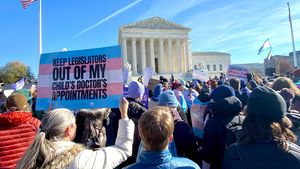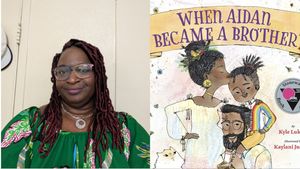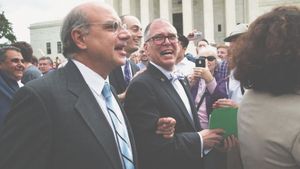The West Virginia Supreme Court has allowed an infant to remain in the care of her same-sex foster parents in Fayette County.
In a unanimous decision on Friday, the justices decided Fayette Circuit Judge Paul Blake was in the wrong when he allowed the Department of Health and Human Resources' approval to have the infant removed from her foster home.
The infant lived in the care of Kathryn Kutil and Cheryl Hess, a couple who had prior approval to be foster parents for the child's entire life, since being born in December 2007 to a drug-addicted birth mother.
Blake agreed with Thomas Fast, the child's court-appointed guardian-ad-litem, and the DHHR's suggestion that the child be relocated, and decided she would benefit more from life in a home with a "traditional" family, meaning a married mother and father.
"Despite the number of times that this Court has stated the best interest of the child is the polar star upon which decisions involving children are to be based, DHHR did not even consider whether the individual needs of [the child] would be best served by removing her from [Hess and Kutil's] care, but instead opted for a swift and ready solution to the problem the agency created," the opinion reads.
Trending Stories
"The agency simply turned a blind eye to the fact that [the child] had been placed in the foster home a number of months before some of the other children then in the home, and ignored any consideration of the impact relocation would have on [the child's] emotional, physical and mental development."
The justices decided that Blake was not inclined to relocate the child because of receiving care below standards. "It is more than apparent that the only reason why [Kutil and Hess] were being replaced as foster care providers was to promote the adoption of [the child] by what [Blake] called in his November 12, 2008, order a 'traditionally defined family, that is, a family consisting of both a mother and a father,'" as stated in the opinion.

































































































 Cindy Ord/Getty Images
Cindy Ord/Getty Images

























